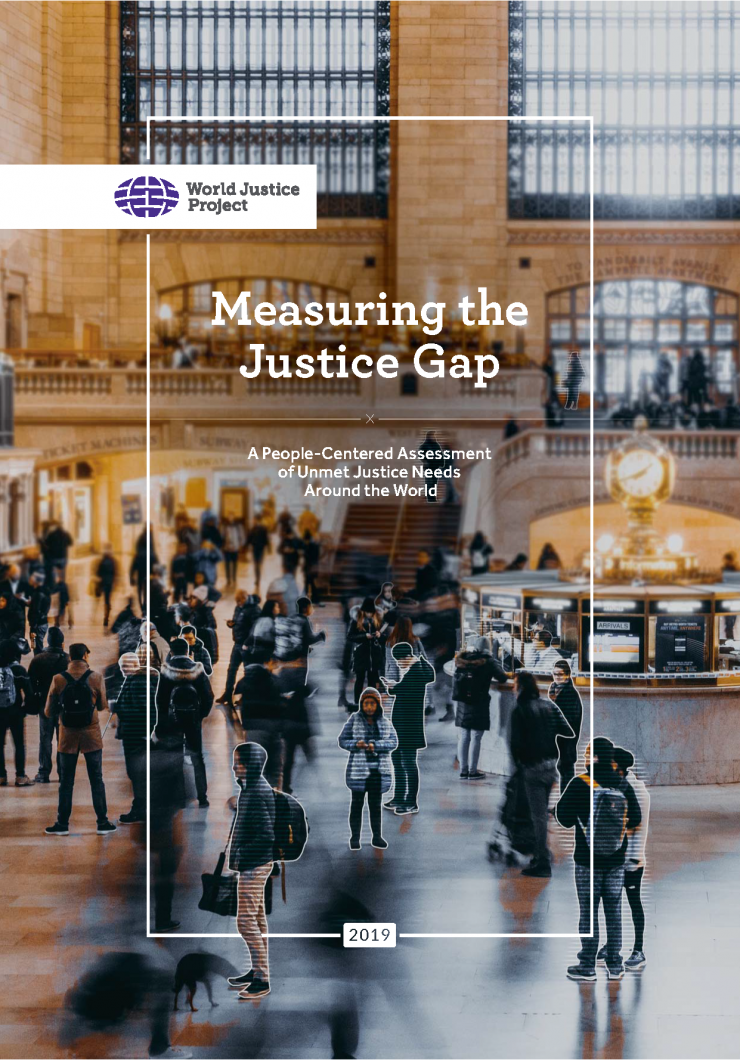
An estimated 5 billion people have unmet justice needs globally, including people who cannot obtain justice for everyday problems, people who are excluded from the opportunity the law provides, and people who live in extreme conditions of injustice.
This justice gap underscores the urgency of realizing justice for all and demonstrates unacceptable levels of exclusion from justice. Out now, Measuring the Justice Gap: A People-Centered Assessment of Unmet Justice Needs Around the World, a report produced by the World Justice Project with expert input from the Task Force on Justice, describes the development process, measurement approach, and progress being made to estimate the scale and impact of the justice gap.
The United Nations Sustainable Development Goals lay out ambitious targets to guide global and national development policies to 2030, including target 16.3's promise to “ensure equal access to justice for all.” However, as the availability of data on people’s experience of justice grows, it is becoming increasingly clear that the world is not on track to meet this target. The data presented in WJP's Measuring the Justice Gap report demonstrate that many people face justice problems, and too few get the justice they need. This “justice gap” undermines human development, reinforces the poverty trap, and imposes high societal costs. Closing the justice gap is therefore vital to realizing the broader development agenda and its vision of a “just, equitable, tolerant, open and socially inclusive world in which the needs of the most vulnerable are met.”
Learn more about the Measuring the Justice Gap report here, and download the report below.
Download the report:








